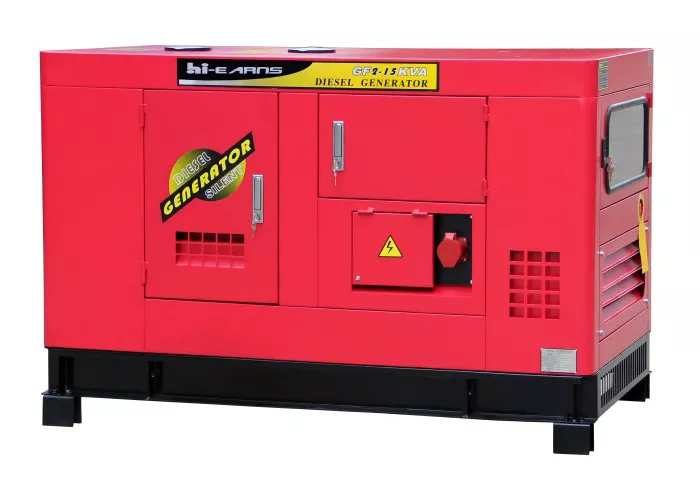Refueling a diesel generator while it is operational raises important safety concerns and procedural considerations. For many users who depend on diesel generators for backup power, understanding the implications of refueling during operation is crucial. This comprehensive guide examines the safety aspects, potential hazards, and best practices associated with refueling a diesel generator while it is running.
1. Understanding Diesel Generator Operation
1.1 Diesel Engine Basics
A diesel generator comprises a diesel engine that burns diesel fuel to produce mechanical energy. This energy drives an alternator, which then converts mechanical energy into electrical power. The generator’s performance depends on several key components:
Diesel Engine: Burns diesel fuel to create mechanical power.
Alternator: Converts mechanical power into electrical power.
Fuel System: Includes the fuel tank, pump, and filters necessary for delivering diesel fuel to the engine.
Cooling System: Maintains the engine at an optimal temperature to prevent overheating.
Control Panel: Allows users to monitor and manage the generator’s performance.
1.2 Importance of Refueling
Diesel generators are designed to run for extended periods, but they require a steady supply of fuel to continue operating. Refueling is a routine part of generator maintenance, especially during long power outages. Proper refueling procedures ensure that the generator remains operational and continues to provide necessary power during critical situations.
2. Safety Considerations for Refueling
2.1 Potential Risks
Fire Hazard: Refueling a generator while it is running significantly increases the risk of fire. Diesel fuel is flammable, and the heat generated by the engine can ignite fuel vapors, leading to a fire hazard.
Fuel Spills: Spills during the refueling process can create dangerous conditions. Fuel spills can come into contact with hot engine components or electrical parts, which could result in a fire or damage to the generator.
Engine Damage: Refueling while the engine is running can also cause contamination of the fuel system. Dust and debris can enter the fuel system, leading to potential engine damage and performance issues.
2.2 Manufacturer Recommendations
Consult the Manual: Always refer to the generator’s manual for specific instructions regarding refueling. Many manufacturers advise against refueling while the engine is running to minimize safety risks.
Adhere to Guidelines: Following the manufacturer’s safety guidelines helps reduce risks and ensures the generator’s longevity and safe operation.
3. Safe Refueling Practices
3.1 Turn Off the Generator
Shutdown Procedure: For optimal safety, it is recommended to turn off the generator before refueling. Shutting down the generator eliminates the risk of ignition from fuel vapors and hot engine parts.
Cooling Down: Allow the engine to cool down before refueling. This reduces the risk of ignition from heat and prevents potential burns or injuries.
3.2 Use Proper Equipment
Approved Fuel Nozzles and Containers: Use fuel nozzles and containers designed for diesel fuel to prevent spills and ensure safe handling. Ensure all equipment is in good condition and free from leaks.
Spill Kits: Keep spill kits and absorbent materials readily available to quickly address any accidental spills. These kits should include items such as absorbent pads, booms, and gloves.
3.3 Refuel in a Safe Environment
Ventilated Area: Perform refueling in a well-ventilated area to disperse any fuel vapors. Adequate ventilation helps reduce the risk of inhaling harmful fumes and minimizes the chance of vapor ignition.
Avoid Ignition Sources: Ensure that there are no sources of ignition, such as smoking or open flames, near the refueling area. Sparks or heat sources can easily ignite fuel vapors, leading to a fire.
see also: How Efficient Are Diesel Generators?
4. Emergency Procedures
4.1 Dealing with Spills
Immediate Response: If a fuel spill occurs, stop the refueling process immediately and use absorbent materials to contain and clean up the spill. Ensure that the spill area is well-ventilated to disperse fumes.
Report Incidents: Report any significant spills or safety incidents to the appropriate personnel or authorities. Proper documentation and reporting help in managing the aftermath and preventing future incidents.
4.2 Fire Safety
Fire Extinguishers: Keep appropriate fire extinguishers near the refueling area. Foam or dry chemical extinguishers are suitable for diesel fuel fires. Ensure that all personnel are trained in their use.
Emergency Protocols: Familiarize yourself with emergency protocols and evacuation procedures in case of a fire or other hazardous situations. Regular drills and training can help ensure preparedness.
5. Benefits of Safe Refueling Practices
5.1 Enhanced Safety
Reduced Risk: Following safe refueling practices significantly reduces the risk of fire, spills, and engine damage. Ensuring proper procedures helps maintain a safe working environment.
Compliance: Adhering to safety guidelines and regulations ensures compliance with industry standards and legal requirements.
5.2 Extended Equipment Life
Preventive Maintenance: Proper refueling and maintenance practices contribute to the overall health and longevity of the generator. Regular checks and safe handling prevent premature wear and tear.
Improved Performance: A well-maintained generator operates more efficiently and reliably. Proper refueling practices help ensure optimal performance and minimize downtime.
Conclusion
Refueling a diesel generator while it is operational presents several safety risks, including fire hazards, fuel spills, and potential engine damage. To ensure safe operation, it is recommended to turn off the generator before refueling, use appropriate equipment, and follow best practices for handling fuel. Adhering to manufacturer guidelines and safety protocols not only protects the equipment but also ensures the safety of personnel and the surrounding environment. By implementing these practices, users can maintain the reliability and efficiency of their diesel generators while minimizing potential hazards.
Related topics:
- Propane VS Diesel Generator: Which Is Better?
- How Often Should a Diesel Generator Be Serviced
- What Is the Working Principle of Diesel Generator

